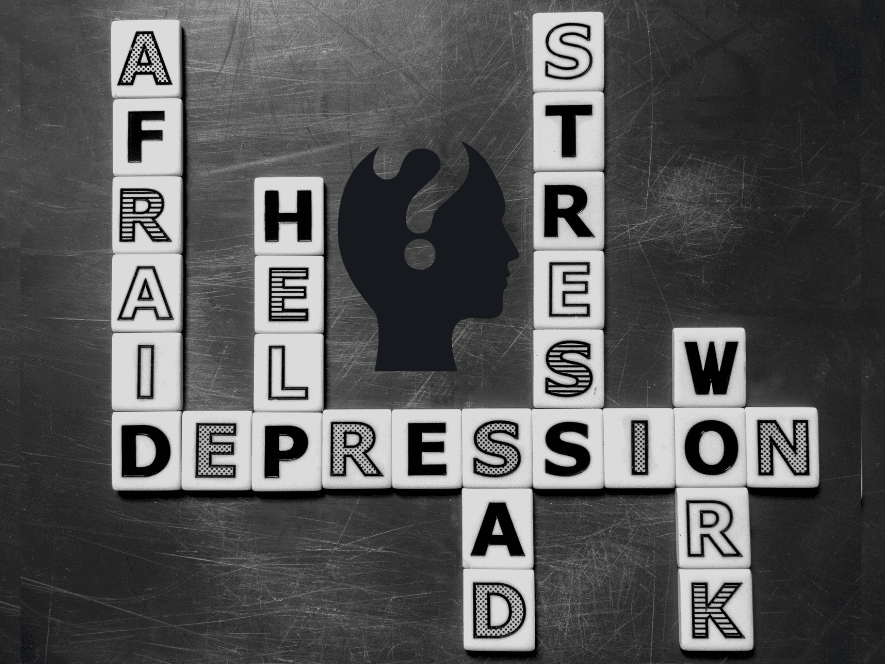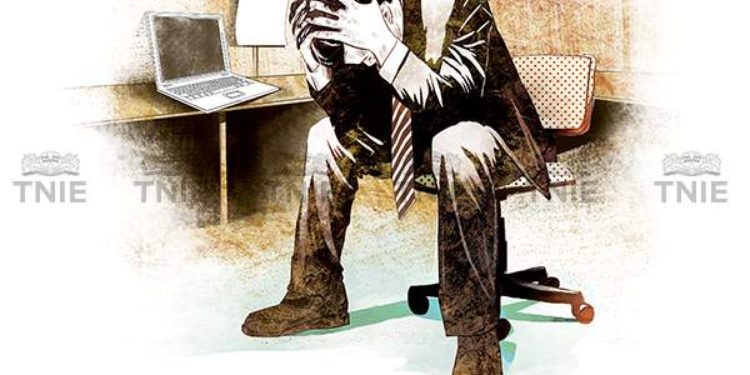Due to depression and anxiety, stress not only creates debilitating negative emotions but also results in lower productivity, the inability to concentrate on work, and strained relationships with colleagues.
Sadness, anxiety, loss of motivation, difficulty concentrating, unexplained bouts of crying, and boredom are just a small sampling of the things you may be feeling if you’re experiencing depressive symptoms at work.
A study conducted by Assocham showed 42.5% of employees in the Indian private sector are afflicted with depression as compared to government employees this is attributed to less pay and more working hours which creates a work atmosphere with constant fatigue thereby affecting the mental health

What is Work Depression?
A private sector employee works for a minimum of 48-50 hours a week when compared to 33 hours a week in the UK and 40 hours a week in the US.
The pay scale in a developing country like India is meager when compared to these developed countries. This leads to an extremely demanding schedule, elevated stress levels, and performance pressure.
While the job may/may not cause depression, the environment worsens symptoms for people who already live with depression.
Signs of Work Depression:
The signs of depression at work are generally similar to those of general depression. Some of the symptoms might be specific regarding the workplace setting.
Some of the more common signs of work depression include:
- Increased anxiety levels, especially when managing stressful situations or thinking about work when you’re away from your job.
- Low energy and lack of motivation to do things, which can sometimes manifest as boredom in tasks.
- Inability to concentrate or pay attention to work tasks and trouble retaining or remembering things, especially new information.
- Physical complaints like headaches, fatigue, and an upset stomach along with loss of appetite and weight loss.
- Irritability, increased anger, and poor frustration tolerance.
-

thedawnrehab
Why you might be depressed?
While the following symptoms might not be exhaustive, they may contribute to work depression:
- Feeling like you have no control over work issues or like your job is at stake.
- Working in a toxic work environment.
- Experiencing workplace harassment or discrimination.
- Being overworked or underpaid.
- Working in a setting that doesn’t match your personal values or further helps your future goals.
:max_bytes(150000):strip_icc()/GettyImages-1073867592-9cb6c5305ce34b9888f4b7fd21ee387c.jpg)
verywellmind
What can you do?
Managing symptoms at work could be difficult. There are some things you can do when feeling low:
- Take a 10-minute break away from your desk or office.
- Go for a quick walk during a break — even if it’s indoors, exercise does wonders for mental health.
- Take a mental health day.
- Practice a few minutes of mindfulness meditation.
- Incorporate deep breathing exercises into your day.
- Say no to one small thing that allows you to experience less stress during the day.
- Watch a funny video or listen to music, something that relaxes your mind.

educum
Conclusion:
Experiencing symptoms of depression while at work can feel overwhelming. Identifying signs like anxiety, crying, boredom, and lack of interest is the first step to getting help.
If you’re concerned about work depression, consider reaching out to your supervisor or human resources department. They can help you find a counselor through an employee assistance program.
Also Read:





















